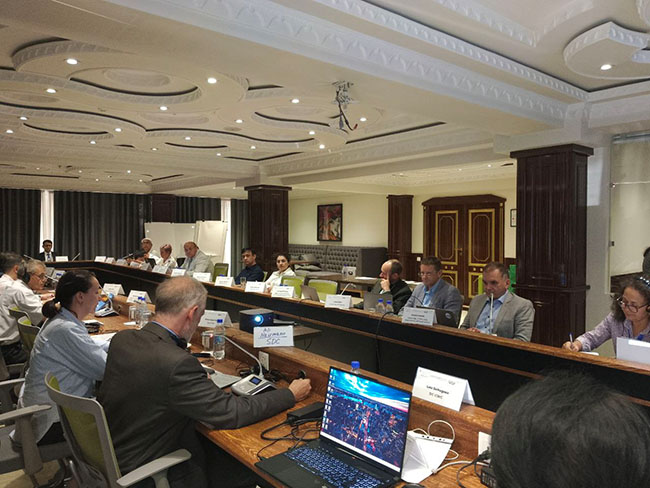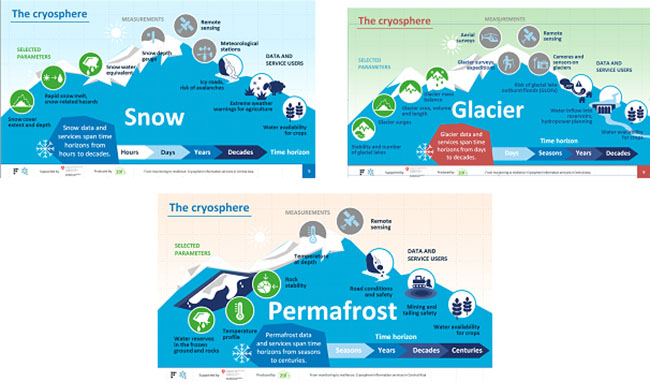No. 43 (567) May 2025
STAKEHOLDER WORKSHOP ON USING CRYOSPHERIC DATA TO ENHANCE CLIMATE RESILIENCE AND WATER SECURITY IN CENTRAL ASIA
A stakeholder workshop focused on the use of cryospheric data to enhance climate resilience and water security in Central Asia was held in Dushanbe on 28 May 2025. The event was organized under the Cryospheric Observation and Modelling for Improved Adaptation in Central Asia (CROMO-ADAPT) project, co-funded by the Swiss Agency for Development and Cooperation (SDC) and implemented by the University of Fribourg and the Swiss Federal Institute for Forest, Snow and Landscape Research (WSL/SLF).

The workshop, which was held as part of the International Conference on Glacier Conservation, was organized by SIC ICWC. It brought together representatives from various Tajikistani agencies and organizations, as well as experts from the Central-Asian Institute for Applied Geosciences (CAIAG), the Regional Mountain Centre of Central Asia (RMCCA) and the Laboratory of High Mountain Geocryology of the Central Asian Regional Glaciological Centre (Category 2, under the auspices of UNESCO).
Experts from the University of Fribourg (Switzerland) presented findings from their research on the current and projected state of snow cover, glaciers, and permafrost in Central Asia. They also introduced two key tools developed under the CROMO-ADAPT project: snowMapper and glacierMapper, which visualize and provide access to cryospheric data. The snowMapper tool enables users to monitor snow cover area, depth, and the duration of the snow season. It tracks snow accumulation dynamics using satellite observations and modeling. The glacierMapper tool offers visualization of changes in glacier area and volume based on remote sensing data. Both tools are designed to support more accurate runoff forecasting and improved disaster risk management.

In the latter part of the workshop, participants engaged in an interactive discussion focused on their specific needs for cryospheric data and the potential applications of the CROMO-ADAPT tools in their work and research. Participants underscored the critical role of cryospheric data in their operations and emphasized the importance of close collaboration with tool developers to adapt the tools to the specific requirements of hydrometeorological services and other relevant agencies. They also highlighted the need for training qualified personnel capable of interpreting and applying cryospheric data in daily operations. Additionally, participants pointed out the necessity of formalizing the integration of these tools into the forecasting processes of hydrometeorological services.
The workshop established a foundation for continued collaboration on the monitoring and use of cryospheric data to support climate adaptation and resilience efforts in Central Asia.